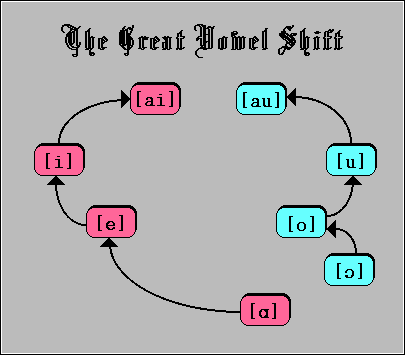Other interesting references on the Great Vowel Shift:
- See and Hear the GVS (excellent visual and audio!)
- Brief History of English
- More English History

The Great Vowel Shift would probably be just an historical curiosity if it weren't for the fact that the first printing press opened in London in 1476, right in the middle of the shift!
Before the printing press was invented, the words in handwritten texts had been spelled according to the dialect of the scribe who wrote them. However, book production was slow and few people could read in any case.
The early printers used the older spellings which Middle English scribes had used. They didn't understand the significance of the pronunciation changes that had just gotten well underway.
By the time the vowel shift was complete (about 100 years from start to finish), hundreds of books had been printed with the older spellings.
The new high volume of book production combined with increasing literacy proved to be powerful forces against spelling change.
As a consequence, many spellings have become "fixed" to the Middle English pronunciation, rather than the modern ones, and we still spell the word for the earth's satellite as "moon."
